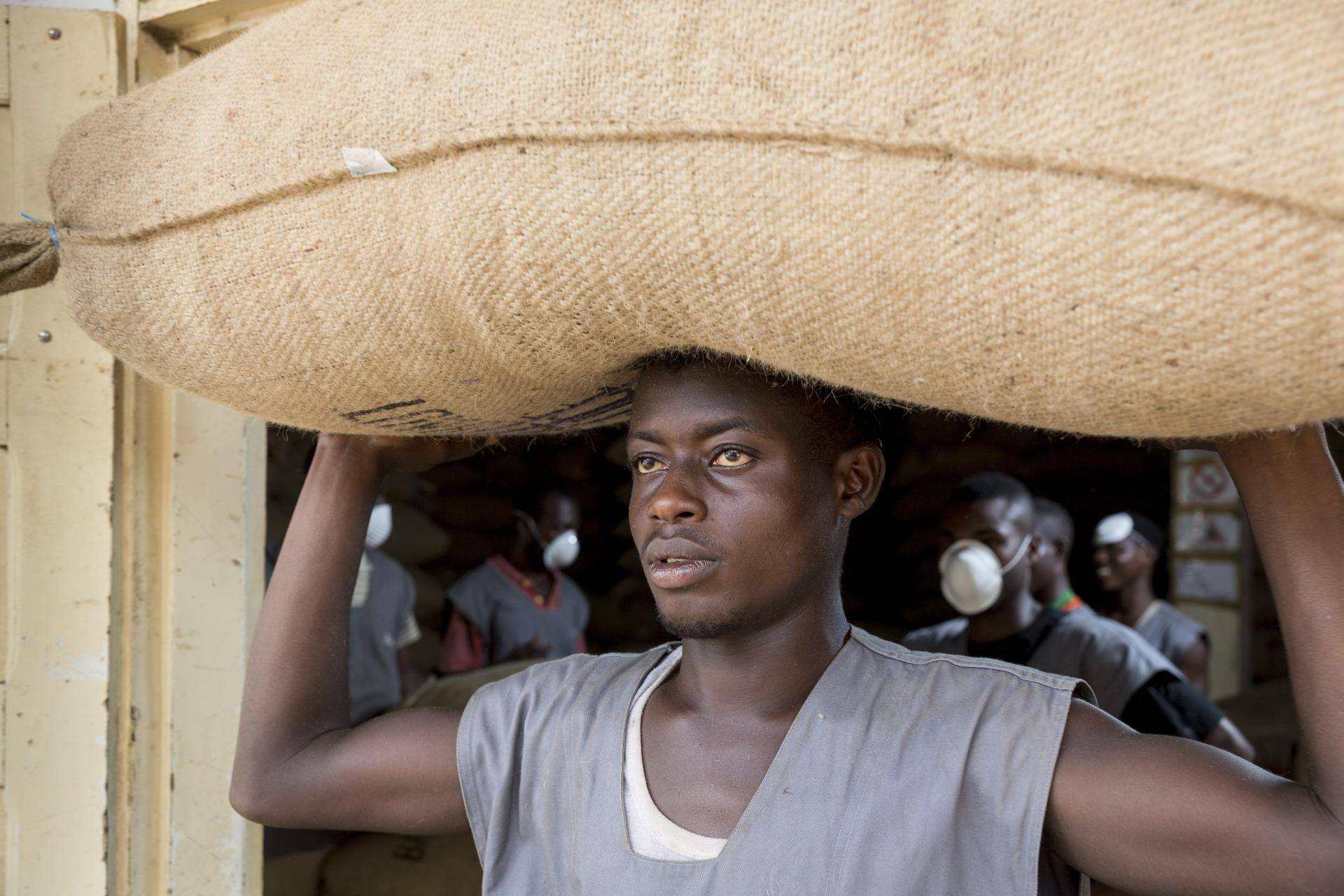Cocoa Farmers in Côte d'Ivoire continue to live in poverty

Cocoa Farmers in Côte d'Ivoire continue to live in poverty
- New study on cocoa farmers published by the French Development Agency (AFD) and Barry-Callebaut on cocoa farmers
- Cocoa farmers in Côte d’Ivoire earn approximately €0.86 per day, far below the national poverty level
- Yield improvement on cocoa farms would be a crucial step forward
Even with the support of an increasing amount of sustainability projects, most cocoa farmers in Côte d’Ivoire still live far below the poverty line. A new study executed by the French Development Agency (AFD) and Barry-Callebaut, the world’s leading manufacturer of high-quality chocolate and cocoa products, estimates that cocoa farmers earn a roughly estimated 568 West African Franc (CFA) per day, approximately €0.86. This is the direct result of low cocoa yields, on average 435 kg/ha, on already relatively small cocoa farms. On top of that, many of the cocoa trees in Côte d’Ivoire are old and beyond their most fertile age. Plant diseases, such as stem borer, swollen shoots virus (CSSV) and mirid bugs add further to the low productivity.
The study also showed that basic socioeconomic infrastructure such as primary schools, primary health care and drinking water is often not present in cocoa farming communities. Nevertheless, farmers do not envisage giving up this crop. The main reason for not adopting better agricultural practices is not the lack of knowledge, but the lack of means.
The survey was carried out in 2013-2014 on more than 700 cocoa farmers and their plots in Côte d’Ivoire. Bruno Leclerc, AFD Country Manager in Côte d’Ivoire: “Data and statistics on cocoa farmers’ well-being, yields, access to finance, diseases and agricultural practices are scarce, which is a serious constraint to the efficient design and implementation of programs and actions for better cocoa sustainability”. The barriers to yield improvements are the insufficient use of fertilizers, including organic fertilizers due to insufficient financial means and the lack of access to finance. In addition and of particular relevance in Côte d’Ivoire where trees are old and highly affected by diseases, the requirement to replant cocoa trees with the optimal planting material is often postponed due to a lack of knowledge of best management practices.
Under its recently launched new sustainability strategy Forever Chocolate, Barry Callebaut has put forward the goal to lift over 500,000 cocoa farmers out of poverty by 2025. Nicko Debenham, Head of Sustainability at Barry Callebaut: “The results of this study show that Barry Callebaut’s approach to lifting cocoa farmers out of poverty by focusing on yield improvement is the right approach. Nevertheless, it also underlines the size of the challenge and the necessity to work with governments to create the right socioeconomic infrastructure and access to finance and inputs”.
For full access to the study please see: http://librairie.afd.fr/nt24-cocoa-farmers-cote-ivoire/
***
About Barry Callebaut Group
With annual sales of about CHF 6.7 billion (EUR 6.1 billion / USD 6.8 billion) in fiscal year 2015/16, the Zurich-based Barry Callebaut Group is the world’s leading manufacturer of high-quality chocolate and cocoa products – from sourcing and processing cocoa beans to producing the finest chocolates, including chocolate fillings, decorations and compounds. The Group runs more than 50 production facilities worldwide and employs a diverse and dedicated global workforce of close to 10,000 people.
The Barry Callebaut Group serves the entire food industry, from industrial food manufacturers to artisanal and professional users of chocolate, such as chocolatiers, pastry chefs, bakers, hotels, restaurants or caterers. The two global brands catering to the specific needs of these Gourmet customers are Callebaut® and Cacao Barry®.
The Barry Callebaut Group is committed to make sustainable chocolate the norm by 2025 to help ensure future supplies of cocoa and improve farmer livelihoods. It supports the Cocoa Horizons Foundation in its goal to shape a sustainable cocoa and chocolate future.